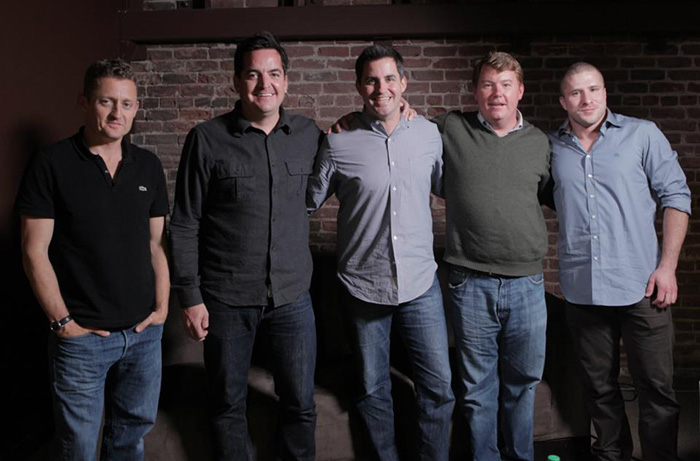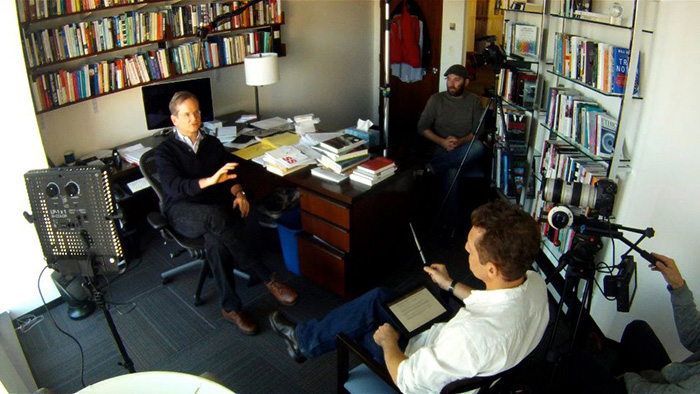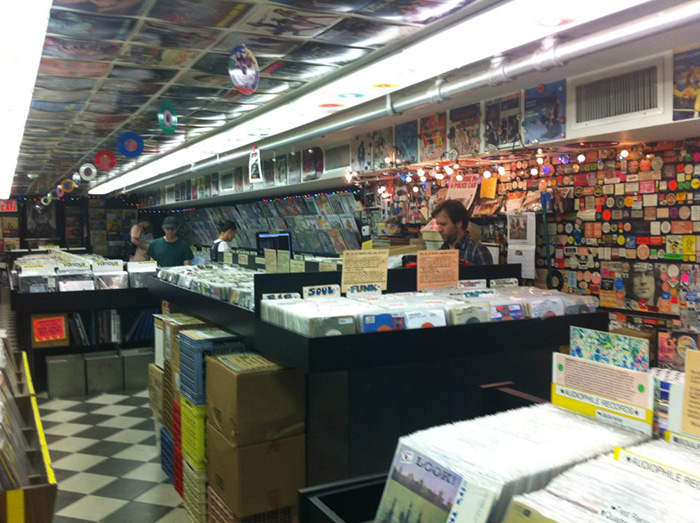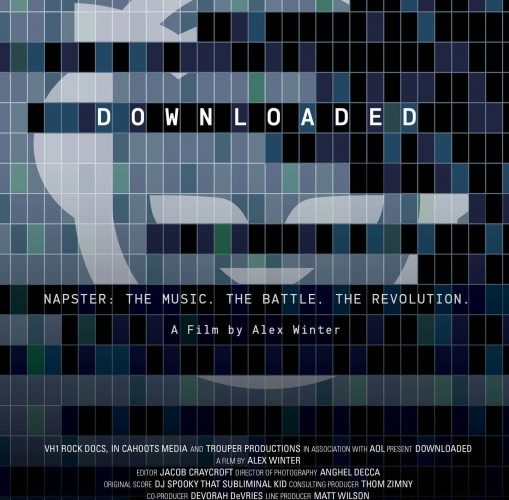Can you believe Napster existed at full capacity for only one year? One year! As the men—nay, boys—behind the peer-to-peer music-sharing phenomenon tell it, the program was perfected by December 1999 and unplugged February 12, 2001 thanks to an injunction by the Recording Industry Association of America (RIAA). While launching in May 1999 and eventually limping to bankruptcy June 3, 2002 after ill-fated attempts to eradicate its copyright infringement issues, the disruptive force that changed the face of the internet was a newborn when it made its deafening noise. Us little people easily transitioned to Limewire and Gnutella before Bit-Torrent took over, so it was easy to forget. In reality, though, every active social media site today owes a debt of gratitude to the community Shawn Fanning and Sean Parker created.

Whereas Facebook’s controversy surrounded founder Mark Zuckerberg‘s ego and quest for money and power, the tale of Napster starts and finishes with a handful of hacker teens looking to change the world. Thanks to Alex Winter‘s meticulous research, wealth of archival footage spanning MTV interviews to Senate hearings, and invaluable present-day conversations with all the major players, his documentary Downloaded goes under the surface of a technological breakthrough’s lifecycle. I was using an Amiga Commodore computer to talk about movies via chat rooms back in 1998, blindly hoping the people I wanted to engage would be on. These guys were connecting on IRC (Internet Relay Chat) to solve problems, expand the capabilities of a boundless resource, and find proof that users internationally were willing to open their hard drives and share their tastes.
Being over a decade later, it’s easy for Fanning and Parker to relay humble dreams of the Napster interface’s sole goal being to team with record labels to evolve their archaic systems and provide a full-service digital distribution platform. It’s also easy to believe them once realizing both ended up in legal debt with nothing to show but a mixture of infamy and respect when the dust settled. It was a puzzle they and collaborators like Jordan Ritter and Ali Aydar tackled to invent something wholly unique. They were eighteen/nineteen year olds working on desks made from old doors that enjoyed working 72 straight hours if it meant celebrating every mini victory on their road to over fifty million subscribers. They were a brotherhood that simply found itself in the crosshairs of an immovable force.

Winter films their candid dissection of those chaotic days as they calculate how many successes were worth the struggle. We listen to the story of Sean and Shawn meeting online, how Fanning solicited advice despite refusing to share his source code, and the when and why that brought the others on board. They were so forward thinking that Google founders Larry Page and Sergey Brin actually told them they aspired towards becoming as big and important as Napster one day. Still quick to laugh and for the most part all fond of the part they played, it’s unsurprising to learn things went down hill when the lawyers got involved. What began as an informal collective of brilliant minds became warped into a cubicle farm that shied away from improving code to futilely attempt legitimization instead.
But these are the visionaries, many of whom have started new ventures that made money. Their story is prolific, a historical document copied and followed ever since through a series of new and improved socially interactive services. The real intrigue of Downloaded therefore lies in the opposition. Whether hearing RIAA president Hilary Rosen explain the meeting where she played “Stump the Napster” to officially introduce the heads of all the record labels to what was happening, the Lars Ulrich/Metallica ordeal bringing the fight and media frenzy to Napster headquarters, or former CEOs looking back ten years removed to give their side of the story, the complexities to what occurred could never have been anticipated. Technological advancement finally helped the consumer first and the industry was clueless as to a response.

No one could have written it better with the inclusion of musicians like Henry Rollins, Chuck D, and Dispatch willfully embracing the new frontier, the scapegoating of Parker due to a memo containing the dreaded term “piracy”, and the millions of venture capital thrown their way in full knowledge of the copyright infringement going on. You can’t actually blame Metallica for getting up in arms when they discovered a song they hadn’t even finished was being played on thirty radio stations across the company. You can’t even really believe the record labels were in the wrong for not wanting to lose the leverage their contracts with their artists gave them. The only thing we can truly look back on with frustration is the fact no one saw the opportunity Fanning’s ideas promised.
Napster took the world by storm when it attempted to create the internet’s next step. iTunes and Spotify (a company with Parker’s name amongst its originators) today show how the industry and consumers have begun the partnership Fanning hoped to achieve. There is more original content available now than ever before and some artists have decided to provide their work free in order to build fanbases. Labels have cannibalized themselves and downsized like crazy as fans proved nothing will stop the way they share music. Everything we currently hold dear about our ever-flattening Earth and ever-widening scope of communication and interaction found its genesis here. We’ve always known about aware the war, but now we can begin to understand the ahead-of-its-time ideology and fear behind it.
Downloaded opens in limited release on Friday, June 21st and hits VOD July 1st.

